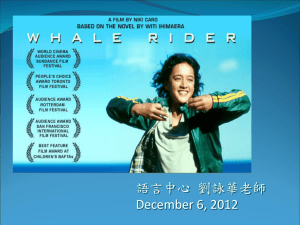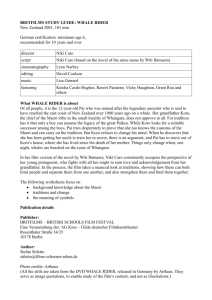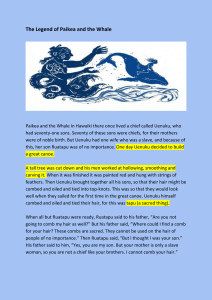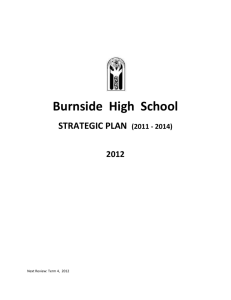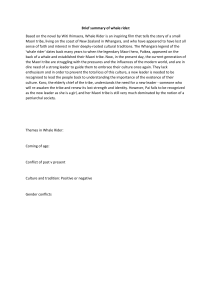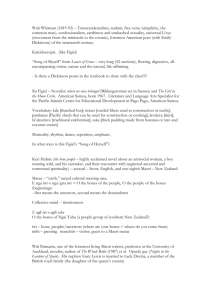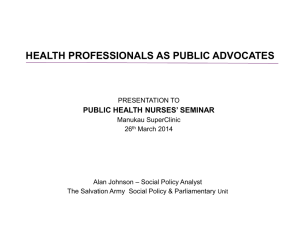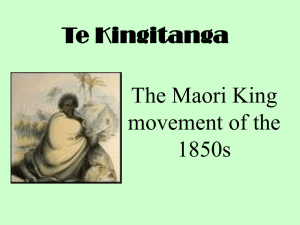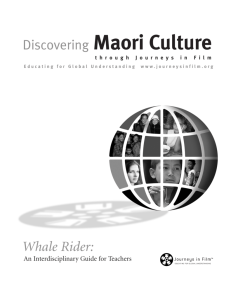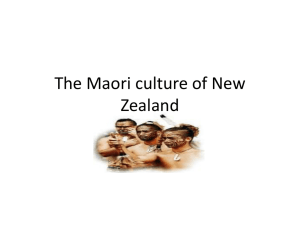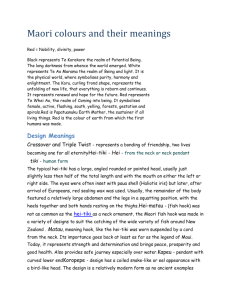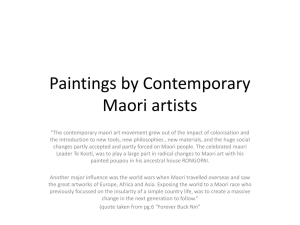Characters in Film
advertisement
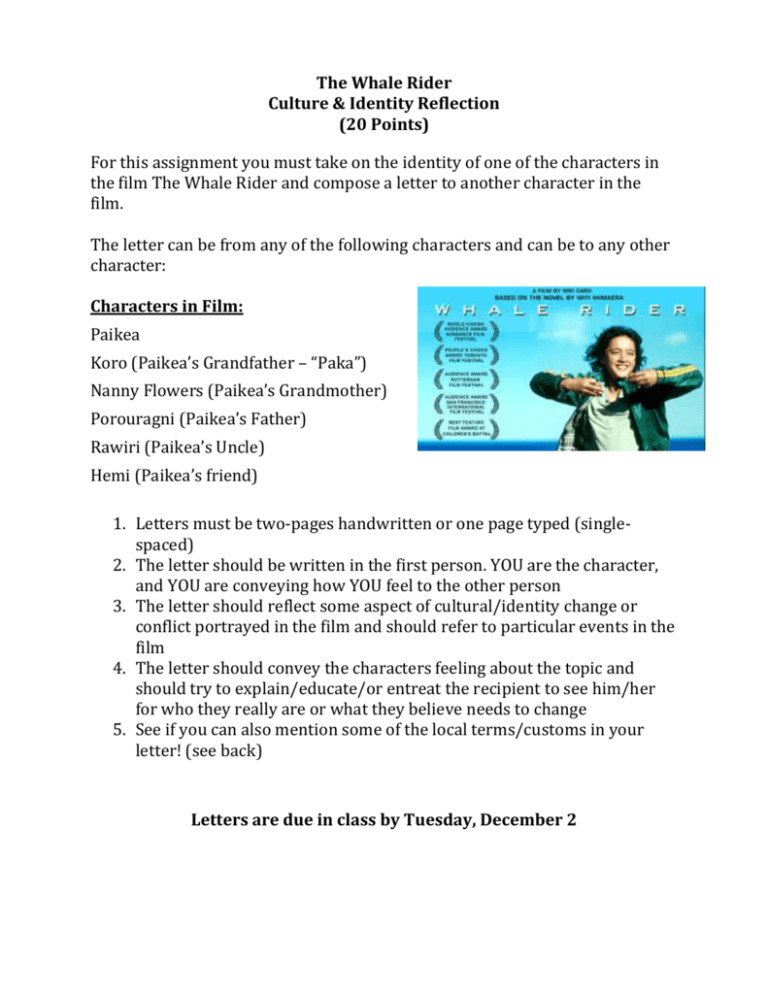
The Whale Rider Culture & Identity Reflection (20 Points) For this assignment you must take on the identity of one of the characters in the film The Whale Rider and compose a letter to another character in the film. The letter can be from any of the following characters and can be to any other character: Characters in Film: Paikea Koro (Paikea’s Grandfather – “Paka”) Nanny Flowers (Paikea’s Grandmother) Porouragni (Paikea’s Father) Rawiri (Paikea’s Uncle) Hemi (Paikea’s friend) 1. Letters must be two-pages handwritten or one page typed (singlespaced) 2. The letter should be written in the first person. YOU are the character, and YOU are conveying how YOU feel to the other person 3. The letter should reflect some aspect of cultural/identity change or conflict portrayed in the film and should refer to particular events in the film 4. The letter should convey the characters feeling about the topic and should try to explain/educate/or entreat the recipient to see him/her for who they really are or what they believe needs to change 5. See if you can also mention some of the local terms/customs in your letter! (see back) Letters are due in class by Tuesday, December 2 Whale Rider Glossary Mäori are the indigenous people of Aotearoa - New Zealand. The word to describe this relationship is Tangata Whenua, meaning people of the land. Although described by many as 'Mäori' in fact Mäori are a composition of many Iwi (Tribes) Hapü (Sub tribes) and Whänau units. Paikea = important mythic Maori ancestor of the East Coast tribes, especially the Ngati Porou tribe, of New Zealand's North Island. Various legends say he came from Hawaiki to Aotearoa [New Zealand], riding on the back of a taniwha [whale]. Te Here Tangata = The Rope of Mankind, is also used to describe Maori genealogy. This eternal "rope" can be visualized as stretching into the past for generations back to the Creation, as well as extending forward through all future generations for at least as long. Aotearoa (Maori: "Land of the Long White Cloud") = New Zealand Hawaiki, or Hawaiiki = Maori for "Land of the Ancients," in Maori oral tradition the homeland of Maori ancestors [may refer to Tahiti and/or other islands of French Polynesia in the eastern Pacific]. ihi = power kura = school to instruct (i.e. male) youngsters of a Maori tribe in the way of the ancient ones. Marae = Meeting place Mau rakau = Stick fighting Pakeha = non-Maori, white European settlers of New Zealand and their descendants reiputa = Koro's whale tooth pendant, the symbol of his chieftainship taiaha = Fighting stick or spear tapu = Sacred, sacredness, the rules of sacred propriety. Waka = Canoe. wehi = fear Whangara, setting of Whale Rider (film & novel), is located on the East Coast of New Zealand's North Island. (Star on map.) Wharenui = Big House, Meeting house Whitireia = the Maori meeting house built at Whangara in 1939. Source: Cora Agatucci, Professor of English, Central Oregon Community College URL: (accessed 12/11/13) http://web.cocc.edu/cagatucci/classes/hum210/whaleri der/whaleriderglossary.html
